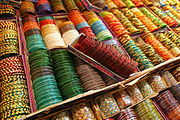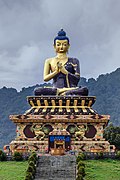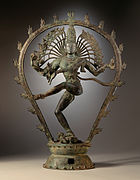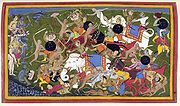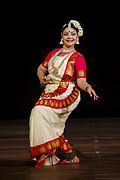Akshaypatill (talk | contribs) Tag: Manual revert |
Akshaypatill (talk | contribs) →Third edit warning notice of the month: new section |
||
| Line 316: | Line 316: | ||
Also take a look at [[WP:Reliable_sources#Age_matters]].[[User:Akshaypatill|Akshaypatill]] ([[User talk:Akshaypatill|talk]]) 21:28, 30 October 2021 (UTC) |
Also take a look at [[WP:Reliable_sources#Age_matters]].[[User:Akshaypatill|Akshaypatill]] ([[User talk:Akshaypatill|talk]]) 21:28, 30 October 2021 (UTC) |
||
== Third edit warning notice of the month == |
|||
[[File:Ambox warning pn.svg|30px|link=]] You currently appear to be engaged in an [[WP:Edit warring|edit war]]  according to the reverts you have made on [[:Subhas Chandra Bose]]. This means that you are repeatedly changing content back to how you think it should be although other editors disagree. Users are expected to [[Wikipedia:Consensus#In talk pages|collaborate]] with others, to avoid editing [[WP:Disruptive editing|disruptively]], and to [[WP:Consensus|try to reach a consensus]], rather than repeatedly undoing other users' edits once it is known that there is a disagreement. |
|||
Points to note: |
|||
# '''Edit warring is disruptive regardless of how many reverts you have made;''' |
|||
# '''Do not edit war even if you believe you are right.''' |
|||
If you find yourself in an editing dispute, use the article's [[Help:Talk pages|talk page]] to discuss controversial changes and work towards a version that represents consensus among editors. You can post a request for help at an [[WP:Noticeboards|appropriate noticeboard]] or seek [[Wikipedia:Dispute resolution|dispute resolution]]. In some cases, it may be appropriate to [[WP:Requests for page protection|request temporary page protection]]. If you engage in an edit war, you '''may be [[WP:Blocking policy|blocked]] from editing.''' Please note edit-warring is not the solution. Per [[WP:BRD]] you need to discuss your edits on the article's talk page, i.e. [[Talk:Subhas Chandra Bose]] and establish a consensus for them ''there''. |
|||
This is your third edit warring notice of the month.[[User:Akshaypatill|Akshaypatill]] ([[User talk:Akshaypatill|talk]]) 03:25, 31 October 2021 (UTC) |
|||
Revision as of 03:26, 31 October 2021
|
1, 2, 3, 4, 5, 6, 7, 8, 9, 10 |
|
This page has archives. Sections older than 10 days may be automatically archived by Lowercase sigmabot III. |
-
Indian vultures, (Gyps indicus), in a nest on the tower of the Chaturbhuj Temple, Orchha, Madhya Pradesh. The vulture became nearly extinct in India in the 1990s from having ingested the carrion of diclofenac-laced cattle.

-
The bank myna is indigenous to the Indian subcontinent.

-
The vulnerable Malabar frog is endemic to the Western Ghats.

-
The endangered Nilgiri tahr is endemic to the Western Ghats. Shown here is a female in a national park in Kerala.

-
The brahminy kite (Haliastur indus) hunts for fish and other prey near the coasts and around inland wetlands.

-
The lotus (Nelumbo nucifera) is the Indian national flower. Hindus and Buddhists regard it as a sacred symbol of enlightenment.

-
The Indian peafowl (Pavo cristatus) is the Indian national bird. It roosts in moist and dry-deciduous forests, cultivated areas, and village precincts.

-
The pushkarani, or tank, located on the eastern side of Krishna temple in Hampi, Karnataka, the seat of the Vijayanagara Empire

-
A Jain woman washes the feet of Bahubali Gomateswara at Shravanabelagola, Karnataka. The Bahubali idol is 18 metres (58 ft) high and is carved out of a single rock on top of a hill.

-
A sixteenth century rendering of a scene from the Ramayana, an ancient Sanskrit epic.

-
The Agasthiyamalai range, constituting the southern end of the Western Ghats, as seen from the rainshadow region of the southwest monsoon in Tirunelveli, Tamil Nadu.

-
A beach off the Arabian Sea in Puvar, Kerala. The Arabian Sea is the northwestern region of the Indian Ocean, bounded by the Arabian and Indian peninsulas.

-
Flowing through its rocky terrain near Hampi is the Tungabhadra river, the major right bank tributary of the Krishna river, a peninsular river, which empties into the Bay of Bengal. The coracles, made of wicker, are traditionally covered with hide, their circular shape preventing them from overturning in rivers with rocky outcrops.

-
An example of the Chinese fishing nets of Cochin. Fisheries in India is a major industry in its coastal states, employing over 14 million people. The annual catch doubled between 1990 and 2010.

-
A bharatnatyam concert in 2014

-
A Bondo woman walks to a weekly market in Chhattisgarh.

-
A woman in Bundi, Rajasthan

-
An ascetic in Varanasi, Uttar Pradesh

-
The tomb of Itmad Ud Daulah, Agra,

-
A Hindu bride

-
The interior of San Thome Basilica, Chennai, Tamil Nadu. Christianity is believed to have been introduced to India by the late 2nd century by Syriac-speaking Christians.

-
A farmer in Rajasthan milks his cow. Milk is India's largest crop by economic value. Worldwide, as of 2011, India had the largest herds of buffalo and cattle, and was the largest producer of milk.
-
Indian agriculture dates from the period 7,000–6,000 BCE, employs two thirds of the national workforce, and is second in farm output worldwide. Above, a farmer works an ox-drawn plow in Kadmati, West Bengal.
-
Schoolchildren in Chambal, Madhya Pradesh eating a mid-day meal. The Mid-Day Meal Scheme attempts to lower rates of childhood malnutrition in India.
-
Cricket is the most popular game among India's masses. Shown here is an instance of street cricket.
-
Asfi Masjid at the Bara Imambara complex, Lukcnow, India

-
Taj Mahal mosque, Agra, India

-
Bangalore panorama

-
Red Weaver ant, Oecophylla smaragdina in Bangalore, India

-
Female Telamonia dimidiata in the Lalbagh Botanical gardens, Bangalore, India

-
Mysore Palace in the morning

-
Indian Olympic athlete, Irfan Kolothum Thodi

-
Grammodes geometrica, Bangalore, India

-
Al-Ameen College of Pharmacy, Bangalore, India

-
Kumar Anish, Indian yoga specialist

-
Bara Imambara, Lucknow, India

-
Indian palm squirrel, Bangalore, India

-
Karnataka High Court, Bangalore

Notice of No Original Research Noticeboard discussion
![]() There is currently a discussion at Wikipedia:No original research/Noticeboard regarding an issue with which you may have been involved. Thank you.
There is currently a discussion at Wikipedia:No original research/Noticeboard regarding an issue with which you may have been involved. Thank you.
Nonmetal
Nice to meet you via FAC talk. I hope my response there was not too over the top.
I hope you have enough time to consider my comments, further to your very welcome contribution.
Here are your comments and my observations and explanations.
1. If I pick up an old high school chemistry textbook, it tells me, "Nonemetals: these are usually poor conductors of heat and electricity. They cannot be hammered into sheets or drawn into wire because they are usually too brittle. Sulfur is an example of such a nonmetal. Some nonmetals such as iodine, carbon, and phosphorus are solid at room temperatures. Bromine is a liquid nonmetal. Others are gaseous, as oxygen, nitrogen, and chlorine." (I comprehend immediately.)
- The textbook is erroneous. Carbon can exist in sheet form as exfoliated (expanded) graphite, and as metre-long carbon nanotube wire; white phosphorus is soft as wax, pliable and can be cut with a knife, at room temperature); sulfur is know as plastic sulfur; and selenium as selenium wires. That said, within its limitations, it is nicely put.
2. If I pick up the Oxford Dictionary of Chemistry, it tells me: "nonmetal An element that is not a *metal. Nonmetals can either be insulators or semiconductors. At low temperatures nonmetals are poor conductors of both electricity and heat as few free electrons move through the material. If the conduction band is near to the valence band (see ENERGY bands) it is possible for nonmetals to conduct electricity at high temperatures but, in contrast to metals, the conductivity increases with increasing temperature." (The text is coherent. I don't understand everything, but I want to find out.)
- The line that a nonmetal is an element that is not a metal is circular "nonsense". No, nonmetals cannot just be insulators or semiconductors. For example, carbon is a semimetal. No, nonmetals are not necessarily poor conductors: carbon and arsenic e.g. are good conductors. No, it is not the case that, "in contrast to metals, the conductivity increases with increasing temperature." Plutonium increases its electrical conductivity when heated in the temperature range of around –175 to +125 °C.
This is a lacklustre effort by the ODC, as if the person/s who drafted it did now know well enough what they were talking about.
3. Yours text says: "In chemistry, a nonmetal is a chemical element that usually gains one or more electrons when reacting with a metal and forms an acid when combined with oxygen and hydrogen."
- That is what a nonmetal is, based on properties consistently cited in the literature.
- What is it that is not clear?
4. "In chemistry" ... "chemical element" (redundant?) "usually gains" ... "one or more" (redundant?) The reader is already getting distracted by having to muse about this.
- I cannot simply say "element" as this presumes the general reader knows what an "element" is (an element of what?), in chemistry.
- Yes, they usually gain one or more electrons, which is exactly the case. I'm sorry chemistry is a little bit complex.
5. "At room temperature about half are gases, one (bromine) is a liquid, and the rest are solids. Most solid nonmetals are shiny, whereas bromine is colored, and the remaining gaseous nonmetals are colored or colorless." Why the reverse order in the second sentence? Why can't shiny things be colored? Pearls are.
- Having finished with "solids" the second sentence picks up where the first finished. Most solid nonmetals are shiny, period; they are not coloured. The sole exception is sulfur, which is not shiny, but is instead yellow. Pearls have nothing to do, per se, with nonmetal chemical elements in chemistry.
- Your numerous questions suggest the lede has piqued your interest, which the lede is supposed to do.
6. "Most ... whereas" (Most=not all; the "whereas" is already present in the solids.) "Remaining gaseous nonmetals?" (but you didn't mention any gaseous nonmetals earlier for any to remain.)
- Nice! I've added parentheses around "gaseous".
7. "The solids are either hard and brittle or soft and crumbly, and tend to be poor conductors of heat and electricity and have no structural uses (as is the case for nonmetals generally)." Brittle is hard (i.e. hard that breaks easily); why not, "the solids snap or crumble easily?" The reader doesn't know anything about structural uses.
- "Brittle" and "soft" are among key determinants for distinguishing between metals and nonmetals. The general reader, I presume, would at least appreciate that metals have a long-standing history in the development of civilisation via their structural uses. e.g. in tools, pipes, bridges, high-rise buildings, vehicles, many home appliances, and railroad tracks.
- Still, it is dumb of me to say what something is not, so I've added "in contrast to most metals" to the mention of nonmetals having no structural uses. Thank you!
8. "There is no universal agreement on which elements are nonmetals; the numbers generally range from fourteen to twenty-three, depending on the criterion or criteria of interest." "There is no universal agreement .." Is this really needed after you have attempted to define it in such detail? "depending on the criterion or criteria of interest" What else could they depend on?
- Yes, it is needed, since that is the state of the literature. As the Honing the concept section goes on to note:
- "Johnson[51] noted that physical properties can best indicate the metallic or nonmetallic properties of an element, with the proviso that other properties will be needed in a number of ambiguous cases."
- "Kneen at al.[67] added that:
- "It is merely necessary to establish and apply a criterion of metallicity…many arbitrary classifications are possible, most of which, if chosen reasonably, would be similar, but not necessarily identical…the relevance of the criterion can only be judged by the usefulness of the related classification."
- Once a basis for distinguishing between the "two great classes of elements"[68] is established, the nonmetals are found to be those lacking the properties of metals,[69] to greater or lesser degrees.[70]"
9. So you see, the text in the lead is a melange of academic jargon and things that don't cohere.
- There is no academic jargon in the lede.
- The first sentence concisely explains what a nonmetal is, noting it says "usually", implying there may be some exceptions.
- The second sentence explains what their state is i.e. as gas, liquid or solid.
- The third sentence explains what they look like.
- The fourth sentence notes their comportment, conductivity and lack of structural uses.
- The second paragraph elaborates on the "usually" in the first sentence i.e. that there is no universal agreement.
Thanks again, Sandbh (talk) 05:17, 20 October 2021 (UTC)
- (talk page watcher)
- I agree about (1) and (2).
- Why not draft (3)/(4) as:
In chemistry, a nonmetal is a
.chemical[redundant to chemistry; any average reader is expected to know the meaning of element or click on its wikilink] element that usually gainsone or more[redundant to gain] electron(s) when reacting with a metal and forms an acid when combined with oxygen and hydrogen? - In (5)/(6), you are comparing (by use of whereas) two fundamentally different properties - color and shine. You need to reframe the sentence. TrangaBellam (talk) 06:07, 20 October 2021 (UTC)
- Thank you very much, @TrangaBellam:. Nice to hear from you.
- I've removed the "chemical" from chemical element and replaced it with element. I can't say usually gains "electrons"; an appreciable number of elements gain just one "electron". I have added an "either" so that it now reads:
- "…that usually gains either one or more electrons…"
- For (5)/(6) the relevant passage now reads:
- "Most solid nonmetals are silvery-gray, whereas bromine is dark red, and the remaining (gaseous) nonmetals are pale yellow to green, or colorless."
- That's better. Just leaves (7), (8) and (9).
October 2021
October 2021
![]() Hello, I'm Omer123hussain. I wanted to let you know that one or more of your aggressive reverts to India have been restored because they are reliable cited and you do not discussed on talk page before revert. If you would like to experiment, please use your sandbox. If you have any questions, you can ask for assistance at the Teahouse. Please note: You cannot be selective in reverting particular cited work. All editors are equal on WP; so you cannot assume to take liberty to revert others constructive work without discussion and consensus on talkpage.
Hello, I'm Omer123hussain. I wanted to let you know that one or more of your aggressive reverts to India have been restored because they are reliable cited and you do not discussed on talk page before revert. If you would like to experiment, please use your sandbox. If you have any questions, you can ask for assistance at the Teahouse. Please note: You cannot be selective in reverting particular cited work. All editors are equal on WP; so you cannot assume to take liberty to revert others constructive work without discussion and consensus on talkpage.
If it is 17 years old FA, it doesn’t mean that the article should have 2 decades old content, dynamics have changed and that is what i am trying to update, otherwise the articles FA status will be stripped down. So please cooperate and let us constructively contribute to maintain/replace statistics and dynamics. Hope you will collaborate. :)--Omer123hussain (talk) 09:43, 26 October 2021 (UTC)
Points to note:
- Please use talk page before reverting reliably cited content;
- Edit warring is disruptive regardless of how many reverts you have made;
- Do not edit war even if you believe you are right.
If you find yourself in an editing dispute, use the article's talk page to discuss controversial changes and work towards a version that represents consensus among editors. You can post a request for help at an appropriate noticeboard or seek dispute resolution. In some cases, it may be appropriate to request temporary page protection. If you keep engage in an edit war, you may be blocked from editing. :)--Omer123hussain (talk) 09:43, 26 October 2021 (UTC)
Taking the matter to admins.
I disagree with your views and your conduct. You aren't giving me any other reason other than consensus. I don't know why you are adamant about the wordy lead. I am taking this matter to admins.Akshaypatill (talk) 17:47, 30 October 2021 (UTC)
- @Fowler&fowler:I have opened a content dispute resolution - [[1]]Akshaypatill (talk) 18:29, 30 October 2021 (UTC)
Edit warring
![]() You currently appear to be engaged in an edit war according to the reverts you have made on Subhas Chandra Bose. This means that you are repeatedly changing content back to how you think it should be although other editors disagree. Users are expected to collaborate with others, to avoid editing disruptively, and to try to reach a consensus, rather than repeatedly undoing other users' edits once it is known that there is a disagreement.
You currently appear to be engaged in an edit war according to the reverts you have made on Subhas Chandra Bose. This means that you are repeatedly changing content back to how you think it should be although other editors disagree. Users are expected to collaborate with others, to avoid editing disruptively, and to try to reach a consensus, rather than repeatedly undoing other users' edits once it is known that there is a disagreement.
Points to note:
- Edit warring is disruptive regardless of how many reverts you have made;
- Do not edit war even if you believe you are right.
If you find yourself in an editing dispute, use the article's talk page to discuss controversial changes and work towards a version that represents consensus among editors. You can post a request for help at an appropriate noticeboard or seek dispute resolution. In some cases, it may be appropriate to request temporary page protection. If you engage in an edit war, you may be blocked from editing. As you stated on the talk page of the article, you are reverting my edits in the leads of the page because, you want to rewrite and shorten the lead. Please don't assume the role of maintainer of the page. We all are here to make Wiki a better and reliable source. Please note edit-warring is not the solution. Akshaypatill (talk) 19:23, 30 October 2021 (UTC)
Reverts on Shivaji
You recently reverted my edits on the page questioning the reliability of the sources. Have a search on Google, Sir Jadunath Sarkar CIE was a prominent Indian historian and a specialist on the Mughal dynasty. You are insulting the works of these legends. I ain't glorifying Shivaji. You could have changed the content you have a problem with, rather than reverting all the edits. Akshaypatill (talk) 21:08, 30 October 2021 (UTC)
Also take a look at WP:Reliable_sources#Age_matters.Akshaypatill (talk) 21:28, 30 October 2021 (UTC)
Third edit warning notice of the month
![]() You currently appear to be engaged in an edit war according to the reverts you have made on Subhas Chandra Bose. This means that you are repeatedly changing content back to how you think it should be although other editors disagree. Users are expected to collaborate with others, to avoid editing disruptively, and to try to reach a consensus, rather than repeatedly undoing other users' edits once it is known that there is a disagreement.
You currently appear to be engaged in an edit war according to the reverts you have made on Subhas Chandra Bose. This means that you are repeatedly changing content back to how you think it should be although other editors disagree. Users are expected to collaborate with others, to avoid editing disruptively, and to try to reach a consensus, rather than repeatedly undoing other users' edits once it is known that there is a disagreement.
Points to note:
- Edit warring is disruptive regardless of how many reverts you have made;
- Do not edit war even if you believe you are right.
If you find yourself in an editing dispute, use the article's talk page to discuss controversial changes and work towards a version that represents consensus among editors. You can post a request for help at an appropriate noticeboard or seek dispute resolution. In some cases, it may be appropriate to request temporary page protection. If you engage in an edit war, you may be blocked from editing. Please note edit-warring is not the solution. Per WP:BRD you need to discuss your edits on the article's talk page, i.e. Talk:Subhas Chandra Bose and establish a consensus for them there. This is your third edit warring notice of the month.Akshaypatill (talk) 03:25, 31 October 2021 (UTC)









